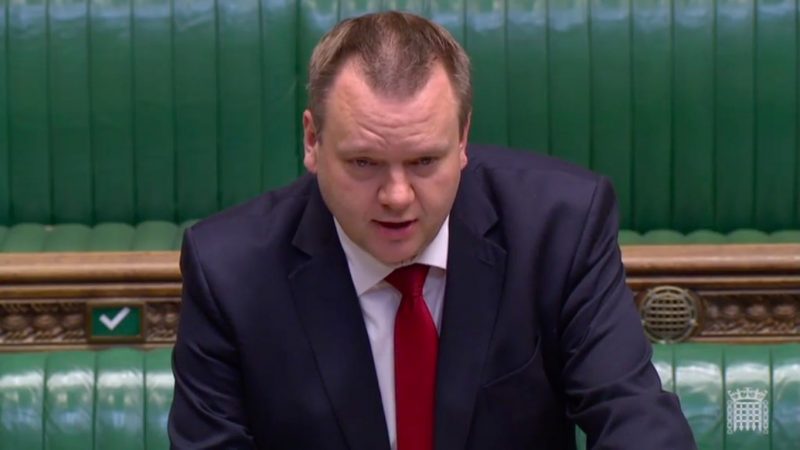
Labour’s Nick Thomas-Symonds has said that the information detailed in the now-published Russia report “exposes deep systemic failings in the government’s approach to security”.
Commenting on the report released by the intelligence and security committee on Tuesday morning, the Shadow Home Secretary said it was “little wonder” that the government had wanted to delay its publication.
Thomas-Symonds warned that the long-awaited dossier showed “no overall strategic response” to the challenge presented by Russia, and called on the government to “address these systematic failings”.
Ahead of an urgent question tabled in parliament on Wednesday, he said: “The intelligence and security committee’s report on Russia exposes deep systemic failings in the government’s approach to security.
“This report outlines the scale of the shortcomings of the government’s response to maintaining our national security in the face of what is clearly a growing and significant threat from Russia.
“The report outlines a litany of hostile state activity, from cyber warfare, interfering in democratic processes, acts of violence on UK soil and illicit finance.
“On every level the government’s response does not appear to be equal to the threat. While on key issues it is clear that there is no overall strategic response to this challenge – little wonder the government has been so keen to delay the publication.
“The UK has world leading security services, yet this report makes clear they have not received the strategic support, the legislative tools or the resources necessary to defend our interests. The government needs to urgently outline how they will address these systemic failings.
“The report should also sound alarm bells ringing that other countries that wish the UK harm are undertaking similar activities and are not facing a sufficiently robust response.”
The report confirmed that Russia had tried to influence the 2014 Scottish independence referendum, and committee members accused the government of having “actively avoided” looking into interference in the 2016 Brexit vote.
Dominic Raab has rejected the claim and insisted that the UK is “not complacent” about the threat posed by Russia. He said that the government had long recognised the “significant threat” represented by Moscow.
“You mentioned the suggestion that the UK actively avoided investigating Russia,” he said. “I think, in fairness, you’ll find that wasn’t in the intelligence and security committee report – it was the comment of one MP, Stuart Hosie.”
But the report did say: “We have not been provided with any post-referendum assessment of Russian attempts at interference. This situation is in stark contrast to the US handling of allegations of Russian interference in the 2016 presidential election.”
It concluded: “It is the committee’s view that the UK intelligence community should produce an analogous assessment of potential Russian interference in the EU referendum and that an unclassified summary of it be published.
“Even if the conclusion of any such assessment were that there was minimal interference, this would nonetheless represent a helpful reassurance to the public that the UK’s democratic processes had remained relatively safe.”
Reacting to the release of the document, the Labour Party called on the government to “study the conclusions of the report carefully and take the necessary steps to keep our country safe”.
Commenting earlier today, Lisa Nandy said: “It is extraordinary that the Prime Minister, Boris Johnson, took the political decision last October ahead of the general election to block the publication of this important report that systematically goes through the threat Russia poses to the UK’s national security.
“The report is very clear that the government has underestimated the response required to Russia and it is imperative we learn the lessons from the mistakes that have been made.”




More from LabourList
‘Tackling poverty should be the legacy of Keir Starmer’s government’
‘The High Court judgment brings more uncertainty for the trans community’
‘There are good and bad businesses. Labour needs to be able to explain the difference’